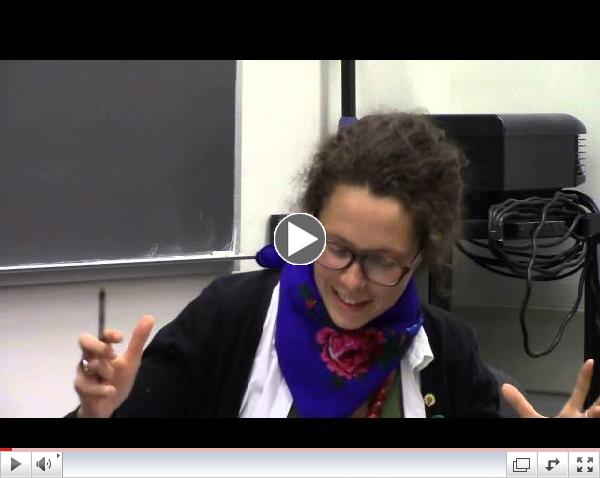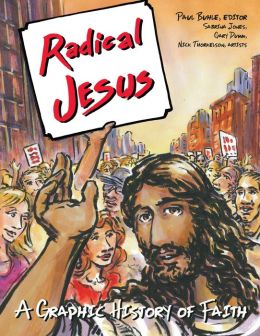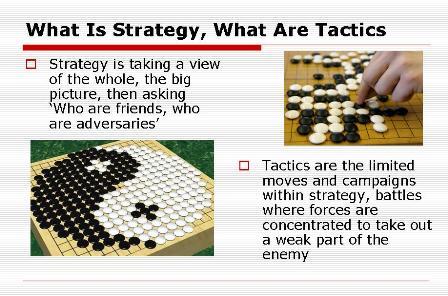 | |
Angela Davis on Nelson Mandela
|
|

Jackson Rising:
New Economies Conference
|
 | |
Journal of the Black Left Unity Network
|
|
 | |
Left Third-Party Organizing: Panel from the Left Forum, Including Talk by CCDS's Carl Davidson
|
|

New CCDS Book Reporting on Vietnam
|
 The new annual edition of our journal of discussion and analysis is now out. More than 130 pages, it includes 20 articles on organizing, racism and the right. Cost is $10 plus shipping. Or get one by becoming a sustainer. Click the title to buy it directly. The new annual edition of our journal of discussion and analysis is now out. More than 130 pages, it includes 20 articles on organizing, racism and the right. Cost is $10 plus shipping. Or get one by becoming a sustainer. Click the title to buy it directly.
|
|
Radical Jesus:
A Graphic History of Faith  By Paul BuhleHerald Press By Paul BuhleHerald Press
|

Check out what CCDS has been doing...
|
 Keep On Keepin' On Keep On Keepin' OnStrategy and Tactics Slide Slow, Class and Privilege, the Green New Deal ...and other Short Posts on Tumblr by Carl Davidson
|

Edited by Carl Davidson Revolutionary Youth the the New Working Class: The Praxis Papers, the Port Authority Statement, the RYM Documents and other Lost Writings of SDS
Changemaker, 273pp, $22.50
For the full contents, click the link and view 'Preview' under the cover graphic.
|
|
By Randy Shannon, CCDS

"Everyone has the right to work, to free of employment, to just and favorable conditions of work and to protection against unemployment."
- United Nations Universal Declaration of Human Rights, December 10, 1948
I. Introduction
The "Great Recession" that began in 2007 has caused the greatest percent of job losses since the Great Depression of 1929. This crisis is the end of an era of unrestrained 'neo-liberal' capitalism that became public policy during the Reagan administration. The crisis marks a new level of instability with the growth of a global financial elite that targeted US workers and our trade unions after World War II.
|
|
Order Our
Full Employment Booklets
 |
...In a new and updated 2nd Edition
Capitalism may well collapse under its own excesses, but what would one propose to replace it? Margaret Thatcher's mantra was TINA...There Is No Alternative. David Schweickart's vision of "Economic Democracy" proposes a serious alternative. Even more fundamentally, it opens the door to thinking about alternatives. His may or may not turn out to be the definitive "successor system," but he is a leader in breaking out of the box. |
We Are Not What We Seem:
Black Nationalism and Class Struggle in the American Century
By Rod Bush, NYU Press, 1999
|
 A Memoir of the 1960s A Memoir of the 1960s
by Paul KrehbielAutumn Leaf Press, $25.64 | | Shades of Justice Video: Bringing Down a President, Ending a War |
|

Essays on Mondragon, Marx, Gramsci
and the Green and Solidarity Economies |
Solidarity Economy:What It's All About

Edited by Jenna Allard, Carl Davidson and Julie Matthaei
Buy it here...
|

- Foreword by Susan Brownmiller
- Preface by Ken Wachsberger
$37.50 + $6 shipping
|
|
Discussion Documents for a Militant Movement

By Don Hamerquist
|
|
|
|
An Invitation to CCDSers and Friends...
 Political Crisis: Political Crisis:
They Can't Govern in the Old Way, as
Times Get Harder
We're the Committees of Correspondence for Democracy and Socialism...Do you have friends who should see this? Pass it on...Do you have a blog of your own? Others you love to read every day? Well, this is a place where you can share access to them with the rest of your comrades. Just pick your greatest hits for the week and send them to us at carld717@gmail.com!
Most of all, it's urgent that you oppose war on Iran, defend voter rights, plan for 2014 races now, oppose austerity, support the 'Moral Mondays' in North Carolina, the Congressional Progressive Caucus' 'Back to Work Budget'! We're doing more than ever, and have big plans. So pay your dues, make a donation and become a sustainer. Do it Now! Check the link at the bottom... |
'Makes Absolutely No Sense':
Budget Deal Helps Billionaires, Not the Poor
 | | David Cay Johnston on Budget Deal T |
Amy Goodman Interviews David Cay Johnston
By Amy Goodman
Democracy Now!
Dec. 17, 2013 - A bipartisan budget deal to avert another government shutdown comes before the Senate this week. The vast majority of House members from both parties approved the two-year budget agreement last week in a 332-to-94 vote. It is being hailed as a breakthrough compromise for Democrats and Republicans. The bill eases across-the-board spending cuts, replacing them with new airline fees and cuts to federal pensions. In a concession by Democrats, it does not extend unemployment benefits for 1.3 million people, which are set to expire this month. To discuss the deal, we are joined by David Cay Johnston, an investigative reporter who won a Pulitzer Prize while at The New York Times. He is currently a columnist for Tax Analysts and Al Jazeera, as well as a contributing editor at Newsweek.
TRANSCRIPT:
AMY GOODMAN: A bipartisan budget deal to avert another government shutdown comes before the Senate this week. The House approved the two-year budget agreement last week in a 332-to-94 vote. The bill eases across-the-board spending cuts, replacing them with new airline fees and cuts to federal pensions. In a concession by Democrats, it does not extend unemployment benefits for 1.3 million people, which is set to expire this month. Republican Congressmember Paul Ryan and Democratic Senator Patty Murray called the deal a win for both sides.
REP. PAUL RYAN: I think this agreement is a clear improvement on the status quo. This agreement makes sure that we don't have a government shutdown scenario in January. It makes sure that we don't have another government shutdown scenario in October. It makes sure that we don't lurch from crisis to crisis.
SEN. PATTY MURRAY: Our deal puts jobs and economic growth first by rolling back sequestration's harmful cuts to education and medical research and infrastructure investments and defense jobs for the next two years.
AMY GOODMAN: That was Republican Congressmember Paul Ryan and Democratic Senator Patty Murray.
The budget deal is being hailed as a breakthrough compromise for Democrats and Republicans, but not everyone supports it. Democratic Congressmember Mark Pocan of Wisconsin said in a statement, quote, "At the end of the day, the bill abandons 1.3 million Americans who desperately need unemployment insurance, and does nothing to promote economic growth or job creation. Furthermore, the legislation is paid for on the backs of the middle class and military families, while not touching the wealthiest amongst us and allowing corporations to continue to benefit from tax loopholes," he said.
Well, for more, we go to Rochester, New York, where we're joined by David Cay Johnston, an investigative reporter who won a Pulitzer Prize when he was at The New York Times. He's currently a columnist for Tax Analysts and Al Jazeera, as well as a contributing editor at Newsweek.
David Cay Johnston, thanks so much for joining us. He's joining us from PBS station WXXI in Rochester. Talk about the deal.
DAVID CAY JOHNSTON: Well, this deal is a-actually, I think, a big win for the Paul Ryan Republicans. They will avoid the embarrassment, shame and political damage of shutting down the government, and they will obtain this from the-they obtained this from the Democrats without, as Congressman Pocan pointed out in his statement, touching at all the major issues. The corporate loopholes aren't being closed. The tax-avoidance techniques of billionaires, who can legally live tax-free if they choose to, are not being shut down. The hedge fund and private equity managers will continue to be advantaged. And we're going to kick 57,000 poor children out of Head Start, which means we're going to narrow their economic futures and make all of us worse off in the future. We're cutting a billion-and-a-half dollars from medical research to save lives. Why? Because the very richest people in America, those who have benefited most from being in this market, don't want to pay for that kind of services. And by the way, being The War and Peace Report, the Pentagon is getting an extra $20 billion out of this deal. We already spend 42 percent of all the money in the world on our military. More money for the Pentagon? Seriously? While we are cutting off unemployment benefits and cutting medical research, reducing pensions for federal workers? This makes absolutely no sense. It will make us worse off.
AMY GOODMAN: What about the poorest Americans, David Cay Johnston? How are they affected?
DAVID CAY JOHNSTON: Well, there is a war going on in this country, and it's on the poor. And we have all sorts of ways that we are doing this. We are restricting their access to Medicaid. We are cutting food stamps dramatically in this country, or will be very soon. There is a 90-day fix for doctors who treat people who are on Medicaid. That, I suspect, will not be continued. And why would we be cutting fees to doctors who provide healthcare to people, unless, of course, you just, as Congressman Grayson once said, want them to die?...(Click title for more)
|
|

Only Al-Jazeera America Offers News These Days
By Karoli
Crooks and Liars
Dec 19, 2013 - It's fitting to look at these two excellent pieces looking at the dumbing-down of our culture via so-called "news" sources as part of the inevitable year-end retrospectives.
Alyssa Rosenberg at Think Progress looks at Duck Dynasty and Phil Robertson's homophobic rant to GQ as a perfect storm of entertainment reality, corporate reality and political reality:
We've reached a point where the monetization of controversial figure as entertainment, their inevitable line-crossing, the organizations that exists to police that line-stepping, and the outrage that accompanies networks' moderation of their own business strategies is an institution in and of itself. The relationships between all players in the cycle are symbiotic. But the power to influence culture and determine which political ideas are mass-marketable is decidedly real.
Eric Boehlert has also written an epic piece about how Beltway media has worked very, very diligently this year to make sure viewers and readers receive something very carefully crafted to stir emotional responses while trading away actual facts in the process. Gosh, we don't see any of that here, do we?
To produce journalism and commentary this vapid and pointless takes work. It doesn't just happen. You have to play dumb about a whole range of issues in order to join in the Beltway fun. Coming at the end of the year, the selfie charade represented a sad encapsulation of the Beltway media's shortcomings; of its painfully unserious pursuits.
What is especially maddening is it highlighted that while the press becomes increasingly fascinated with gotcha events and treats them that as news, it's failing in its primary duty to produce reliable reporting about pressing public policy issues. Specifically, the selfie nonsense played out against the backdrop of the Beltway press corps' that bungled coverage of health care reform.
They worked very hard to make sure people knew there was a relative handful of people in this country who were very, very angry about their policy cancellations. When it came to informing audiences that in fact, those same people were finding better policies for less money on the exchanges, they fell conspicuously silent. Unserious pursuits include playing directly into right-wing agendas to undermine the ACA in order to dampen enthusiasm for something millions in this country need.
 Instead we get cycles and cycles about a selfie snapped at Nelson Mandela's sending-off, as if it's really something we should all be very concerned about. Instead we get cycles and cycles about a selfie snapped at Nelson Mandela's sending-off, as if it's really something we should all be very concerned about.
I'm old enough to remember when news and tabloids were separate. If you wanted the ridiculous scandal headlines, those were readily available in the checkout line at the grocery store, or there was always some celebrity news and gossip show on TV. But news was actually news.
Both of these articles speak to the larger issue of the tail wagging the dog. Instead of filling a duty to inform the public about important and pressing policy issues, the press is driven by what will get the most eyeballs. That's not how it's supposed to work.
The changing landscape of media as we understand it to be should not mean that policy is sacrificed on the altar of listicles or remain the province of well-oiled public relations firms.
The only media outlet raising the bar right now is AlJazeera America. Their reporting is consistently accurate, important, and delivered factually. Unfortunately, they're not in the business of lighting hair on fire, and so receive the least amount of attention. If I had one wish for 2014, that would change. ...(Click title for more)
|

By Jordan Weissmann
The Atlantic
Are Americans educated enough? How you answer that question-which seems to obsess certain newspaper editorial boards-really depends on where in the country you look. Some states compete with the best school systems in the world. Some seem to be racing for the bottom. Today, I wanted to offer up three vivid illustrations of how educationally balkanized we really are, courtesy of the Census Bureau's delightful new interactive data-mapping tool.  First, high school. This map shows the percentage of adults over 25 who have earned a diploma or finished an equivalency program across each county in the lower 48 states. The darker the shade of orange, the higher the graduation rate. Notice the giant pale underbelly stretching below the Mason Dixon line from the Southeast through Texas. That's our Southern dropout belt, where completion rates are largely below 85 percent. The national average, for reference, is about 87 percent.
Still, in the majority of the country, most adults have at least earned a high school diploma or a GED. Not so when it comes to college.  Bachelor's degree holders cluster on the coasts, in major urban centers, and in Colorado. The Northeast's Acela corridor is especially full of them. So while, about 31 percent of American adults have a bachelor's degree or more, across many of our counties, fewer than one in five residents graduated from college.
Here's another way to look at that concentration, wher number of college grads in each county corresponds to the size of the bubble. The Southeast comes out looking a bit better here, but the coasts-East, West, Great Lake, and Gulf-still dominate  Again, we can talk all we want about American education. But in terms of achievement, we're not really one country. ...(Click title for more)
|

By Greg Hanscom
Grist.org
It's a balmy, mid-November morning in Miami Beach, Fla., and I'm sitting at one of the cafe tables in front of the local Whole Foods, sipping a cup of coffee, and watching the tide come up. Oh, you can't see the ocean from here. The tide is gurgling up through the storm drains along the street.
It starts at about 8:00. A trickle of water from a nearby grate quickly becomes a stream which becomes a lake, spreading across the intersection of Alton Road and 10th Street. By 8:20, water pours off of the cars rolling into the parking lot. At 8:40, it reaches the axles of the Jeep parked on the corner. Pedestrians abandon the submerged sidewalks for high ground in the middle of the Alton Road, dodging rooster tails kicked up by passing vehicles. To get back across town, I'll have to wade through murk that comes almost to my knees.
One of my sources here, a scientist studying the impacts of climate change and sea-level rise, tells me that if I stick my finger in that water and taste it, it will be salty. I look at the gunk burbling out of the gutters, swirling with oily rainbows and cigarette butts, and decide to take her word for it.
The water is coming from Biscayne Bay, an arm of the Atlantic Ocean that lies between Miami Beach and the city of Miami. Steadily rising high tides in recent years have driven the stuff backwards through the storm drains, underneath protective seawalls, spilling into the streets and spawning a multimillion dollar retrofit to the city's drainage system. In the process, Crockett and Tubbs' seaside haunt has become a bellwether for coastal communities everywhere that are only just beginning to grok the implications of a problem that will dog us for generations.
To get a sense for what's at stake in Miami Beach, I talked to Miami architect and preservationist Thorn Grafton. His great-great-grandfather came here to grow fruit, and helped build the first bridge between the island and the mainland, paving the way for the island's transformation from a mangrove swamp into a gleaming partier's paradise. Grafton has photographs of the barrier island before it was bulldozed: The dunes were spiked with sabal palms, and red mangroves rose 40 feet from the shallows.
Grafton's grandfather, who did early work in Miami Beach, was influential in creating South Florida's unique architectural style. His father was a well-known Miami architect as well, and his mother was a prominent advocate for preserving the city's historic buildings. After his own architectural studies in New Orleans, Grafton himself took up the cause, joining local activist Barbara Capitman in her fight to save the iconic art deco buildings of South Beach by putting the area on the National Register of Historic Places.
Capitman and her allies ultimately succeeded, although many classic buildings were lost to mega-resorts and highrises along the way. Now, however, sea-level rise could doom all that was saved.
"My concern, short term, is that a storm surge is going to hit all the historic hotels on Ocean Drive," Grafton says, "and some of the building owners are going to use that as an opportunity to [tear down the old structures and] rebuild." Longer term, he worries that rising seas will cut off the two low-lying causeways that currently provide access to the island.
The access issue, at least, is taken into account by the city's 20-year Storm Water Management Master Plan, published in 2012 with the goal of protecting buildings and keeping evacuation routes open during a once-in-five-years storm. Among the first of $196 million in suggested upgrades: Retool the storm drains along Alton Road, installing "backflow preventers" - a kind of one-way valve that stops seawater from running through the system backward - and pumps that can push water out of the streets and into the bay.
"The city has been worried about storm water and sea-level rise for years and years," Jay Fink, assistant director of the Miami Beach Public Works Department, tells me during a meeting at city hall. "With the new administration" - of Mayor Philip Levine, who was elected last year - "it's been elevated as a priority. They've said we need to look at this."
City leaders have also signed on to the Southeast Florida Regional Climate Action Plan, a four-county roadmap for reducing greenhouse gas emissions and adapting to climate change. And a delegation from Miami Beach went to the Netherlands this fall to look at how the Dutch are dealing with rising seas. (For those looking for upsides to climate change, look no further than Dutch engineering firms, which do booming business consulting with seaside cities around the globe.)
But there are some key differences between Southeast Florida and the Netherlands, chief among them that the bedrock here is limestone, which is highly porous. Geologists compare it to Swiss cheese. Build all the dikes and seawalls you like, they say: As the seas rise, the water will just seep in through the ground. Blocking the storm drains may slow it down some, but it's going to come regardless....(Click title for more)
|
Chavista Victory in Venezuela Municipal Elections

By Ewan Robertson
Venezuelanalysis
Dec 9, 2013 -Supporters of the Venezuelan government celebrated their victory in the municipal elections held yesterday, with analysts commenting that President Nicolas Maduro has "reconnected" with Chavismo's social base.
The first results announced last night gave the government's United Socialist Party of Venezuela (PSUV) victory in 58% of the country's municipalities, while the PSUV and its allies gained over 49% of the total vote share versus 43% for the opposition.
After the results were announced, President Nicolas Maduro gave a televised speech from the Plaza Bolivar in central Caracas to celebrate the win.
"Without a doubt we've obtained a great victory today, the people of Venezuela have said to the world that the Bolivarian revolution continues with more strength than ever," he said.
Maduro mentioned that the opposition's Democratic Unity (MUD) coalition had now lost four national elections over the last fourteen months. He also responded to opposition leader Henrique Capriles' argument that the municipal elections would be a "plebiscite" on the government's mandate.
"There you have your plebiscite, Caprichito, fascist. I hope that he learns about humility and shows his face to the country and resigns from the political leadership of the MUD," declared the Venezuelan president.
The next electoral challenge for the government will not be until 2015, when National Assembly elections will be held. Maduro suggested the PSUV and their allies in the Great Patriotic Pole coalition should start thinking about these now, in order to "win big" and "sweep fascism away"....(Click title for more)
|

The Courts, the Security State, and the Rest of Us
By Amy Davidson
The New Yorker
"Suppose, for instance, that there is a person living in New York City who has a phone number that meets the RAS standard and is approved as a 'seed,' " Judge Richard Leon writes in a broad opinion finding that the National Security Agency's "telephony metadata" program is likely unconstitutional.
An R.A.S. is a "reasonable, articulable suspicion" that someone might have something to do with terrorism; a seed is a search term, perhaps a telephone number, that the N.S.A. plugs into a database of hundreds of millions of phone records it has collected indiscriminately.
"And suppose this person, who may or may not actually be associated with any terrorist organization, calls or receives calls from 100 unique numbers, as in my example. But now suppose that one of the numbers he calls is his neighborhood Domino's Pizza shop," Judge Leon continues:
The Court won't hazard a guess as to how many different phone numbers might dial a given Domino's Pizza outlet in New York City in a five-year period, but to take a page from the Government's book of understatement, it's "substantially larger" than the 100 in the second hop of my example, and would therefore most likely result in exponential growth in the scope of the query and lead to millions of records being captured by the third hop.
"My Domino's hypothetical," as Judge Leon, of the D.C. District Court, calls it, captures several of the elements that make his decision particularly strong, and give it the potential to change the direction of the legal discussion surrounding the N.S.A.'s surveillance programs. First, and perhaps foremost, it is unencumbered by the delusion that bulk metadata collection is a practice that will only traipse on bad people. A painfully uncritical "60 Minutes" segment that ran Sunday night talked about how the N.S.A. would follow "hops" in metadata to clusters of "known pirates"; Leon sees people in New York who want pizza; he may even see himself. And he sees how one can be subject to an unwarranted invasion just by having one's phone records put through the analytical mill, by N.S.A. analysts who enter queries "without seeking approval of a judicial officer."
Second, there is a practical sense, often lacking, of what it means to have someone's phone records in this day and age. That leads Leon to confront, in the opinion's most sweeping section, Smith v. Maryland, the 1979 Supreme Court decision that the N.S.A. has leaned on extraordinarily heavily in justifying its collection of telephone (and other) records. As I wrote earlier this month, Smith v. Maryland involved a single robbery suspect already known to the police, believed by them to be making threatening calls to a particular witness. It also involved telephones that are hardly recognizable as the same things we carry around in our pockets. As Judge Leon writes, "Some undoubtedly will be reading this opinion on their cell phones." Not only is the government able to collect more phone data, more easily, and sort it in new ways, "the nature and quantity of the information contained in people's telephony metadata is much greater, as well." He calls it all "almost Orwellian." It is not that he argues Smith v. Maryland should be overturned, but that courts should realize that it's not talking about what they think it's talking about, because the meaning of the words has changed:
Indeed, the question in this case can more properly be styled as follows: When do present-day evolutions in the Government's surveillance capabilities, citizens' phone habits, and the relationship between the NSA and telecom companies become so thoroughly unlike those considered by the Supreme Court thirty-four years ago that a precedent like Smith simply does not apply? The answer, unfortunately for the Government, is now.
That is fortunate for the rest of us. Judge Leon's decision may also open up new avenues for oversight and review; as Ryan Lizza describes in depressing detail in The New Yorker, both have been lacking....(Click title for more)
|
 By Matt Mendez By Matt MendezLatinorebels.com
During the past few years, it's been easy for some to ask: What is the deal with Arizona?
Or, more specifically, what is the deal with that sheriff? With banning books - Shakespeare, really? With the racist SB 1070, which requires anyone who might not look right to carry proof of citizenship or legal residency? With the governor wagging her finger in the President's face?
From the outside, Arizona can appear to be a place speaking with one fanatical voice. But it's not, Jeff Biggers says in State Out of the Union: Arizona and the Final Showdown Over the American Dream. Recently named a Southwest Book of 2012 and a Top Ten 2012 Social Science Title by Publisher's Weekly, State Out of the Union not only investigates Arizona's past decade of political turmoil, but also reveals a struggle to reclaim the state from carpetbaggers and political opportunists.
Biggers starts with an image of Attorney General Eric Holder, former Arizona governor and current director of Homeland Security Janet Napolitano, Arizona Governor Jan Brewer, and President Barack Obama all gathered in the McKale Memorial Center in Tucson days after a tragic shooting Jan. 8, 2011, in which six were killed and 13, including Arizona Congresswoman Gabrielle Giffords, injured.
Almost immediately, Biggers orients the reader into the surreal world of Arizona politics. As Obama beseeched the McKale and national viewing audience to "come together" and "reflect," Arizona state Sen. Russell Pearce, the so-called architect of SB 1070, was busy ramrodding bills through his Tea Party legislature, obliviously declaring the Colt Single-Action Army Revolver as the state gun and providing state financing for the official "Don't Tread on Me" license plate.
To provide context, State Out of the Union examines the state's tumultuous road to statehood. Biggers describes the route from the creation of a state constitution once so progressive it stood in the way of ratification to the eventual manipulation of the fledgling state legislature by out-of-state interests and interlopers.
He then places politicians like Jan Brewer (from California), Joe Arpaio (from Massachusetts) and Tome Horne (from Canada) in the tradition of political outcasts and opportunists looking to remake themselves in the Arizona desert.
The book is written in a strident, but not alarmist, tone. Biggers does his best work when documenting the struggles and victories of everyday Arizonans. He tells of community organizer Randy Parraz, who led the successful recall of Russell Pearce, the state senator who was the primary sponsor of SB 1070. He details the ongoing community struggle to allow the topic of Mexican-American Studies back in Tucson public schools.
Perhaps the biggest revelation in State Out of the Union is that what happens in Arizona (and in the Southwest, for that matter) has a ripple effect on the rest of the country. Other states have adopted anti-immigrant legislation and empowered a culture of fear, ignorance and racism at the local level. But as in Arizona, community members and activists are fighting back.
As the country struggles to deal with immigration, civil rights and what it means to be an American, State Out of the Union serves as a guide to the cultural showdown that now seems inevitable.
Matt Mendez's stories have appeared in Cutthroat, Huizache, The Literary Review, and other journals. His first book, Twitching Heart, is available from Floricanto Press. Contact him at mattmendez.com.
|

A new documentary on narcocorrido, the gangsta rap that glorifies the Mexican drug trade.
By Michael Atkinson
In These Times
Taking on the lacerating trauma and mutilative torque that the brutal drug war between narcotraficantes and the Mexican government has inflicted on the country in the last seven years, Shaul Schwarz's film Narco Cultura first figure-checks the phenomenon's mind-boggling scale.
Total casualties are conservatively estimated around 60,000, though many sources put the number at well over 100,000, or more than 40 homicides a day. Many of the severed heads and torsos and altogether vanished bodies belong to rival drug thugs, but plenty have been journalists, cops, politicians and civilians, a stupefying fallout from ex-President Felipe Calderón's military intervention against the cartels, begun in 2006, which ended up producing retaliatory criminal carnage on a scale unseen anywhere, ever, in North America.
 | Narco Cultura Official Trailer
|
And it's still happening, a year after Calderón's reign ended. The larger point to Schwarz's film is that narco culture is so embedded in everyday Mexican life that it's become its own pop mythology.
Surveying Ciudad Juárez and contemplating its schizo siblinghood with over-the-border El Paso, the movie's attention is split between a typical narco-war Everyman-crime-scene investigator Richi Soto-and a new kind of freak manifestation, narcocorrido singer Edgar Quintero. Soto's job is grim, selfless and bureacratically maddening, dissecting murder scenes day in and day out, bagging dismembered bodies and filing reports no one will act on. (Ninety-seven percent of the 10,000-plus murders in Juárez since 2008 have gone uninvestigated, according to Sandra Rodriguez, a Mexican journalist.) Soto himself is a shy bachelor, quite naturally angling to take his girlfriend north of the border, where he might get a job that doesn't put him on an assassination list.
He's a necessary counterweight to the onslaught of Mexican pop life represented by Quintero, an L.A.-based musician and a rising star in the nascent narcocorrido wave, a bastardization of the traditional corrido-a narrative ballad set to a Mexican polka beat-mated with gangsta-rap sensibilities, outfitted with lyrics extolling the cartel-gangster's perspective on money, murder and bling....(Click title for more)
|
|
Start 2014 With a Red Resolution...
Become a CCDS member today!
 The time is long past for 'Lone Rangers'. Being a socialist by your self is no fun and doesn't help much. Join CCDS today--$36 regular, $48 household and $18 youth. The time is long past for 'Lone Rangers'. Being a socialist by your self is no fun and doesn't help much. Join CCDS today--$36 regular, $48 household and $18 youth.
Better yet, beome a sustainer at $20 per month, and we'll send you a copy of Jack O'Dell's new book, 'Climbing Jacobs Ladder,' drawing on the lessons of the movement in the South in the 1950s and 1960s.
Solidarity, Carl Davidson, CCDS
|
|
|